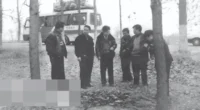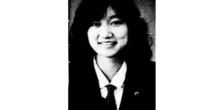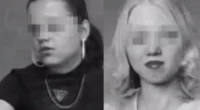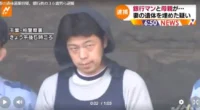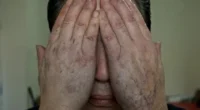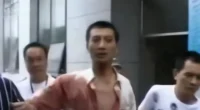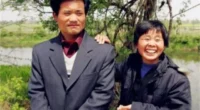Qiu Xinghua wanted to pay homage to the stone tablets engraved with the names of his ancestors, hoping to change his life according to the advice of a fortune teller. However, he was thwarted and became enraged, resulting in the murder of 10 people overnight and continued criminal activities despite being surrounded by police.
Qiu Xinghua was born in 1959 in Ankang City, Shaanxi province. Having only completed primary education, Qiu Xinghua worked as a mechanic repairing household appliances but had been imprisoned three times for theft. After getting married and giving birth to three children, Qiu Xinghua’s family life became even poorer.
In 1999, to avoid debt and avoid being fined for giving birth beyond plan, Qiu Xinghua gave birth to a plan. Qiu Xinghua took his wife and children away from their hometown to the city of Hanzhong, renting a house in search of a way out. However, after several years of struggling, their circumstances did not improve. By 2006, the family was nearly without income and couldn’t afford food.
In May 2006, while traveling in Shiquan County, an elderly man suddenly called them over, pointing at Qiu Xinghua, saying, “You look burdened; let me divine for you. Just go to Phoenix Mountain, find two stone tablets engraved with the ancestors’ names “Ku”, offer incense, and burn paper money, and your wishes will be fulfilled.” Qiu Xinghua followed the advice and indeed found the two stone tablets with the Ku family name engraved on them, placing them atop Thiet Ngoa temple.
From June 18 to July 2, 2006, Qiu Xinghua and his wife visited Thiet Ngoa Palace temple in Haenam County twice to pay homage, staying on the mountain for seven days.
During this time, the couple had multiple conflicts and arguments with the temple’s management staff. Because Qiu Xinghua didn’t want the stone tablets to be exposed to the elements, he moved them inside the temple against the management’s objections. Eventually, due to the management’s strong opposition, Qiu Xinghua had to move them back to their original position. While staying there, the couple also received reprimands for not following the temple’s rules.
Believing in divination, Qiu Xinghua had entrusted all hopes of changing his impoverished life to worshiping the ancestors’ stone tablets. When he was prevented from doing so, he became furious with the temple’s management. Qiu Xinghua also believed that the temple’s abbot had teased his wife, which further fueled his intent to kill and destroy the place.
On the night of July 14, 2006, taking advantage of the temple management, staff, and pilgrims being asleep, Qiu Xinghua committed the crime using a pickaxe and a kitchen knife, causing a massacre, then set fire to the place and fled.
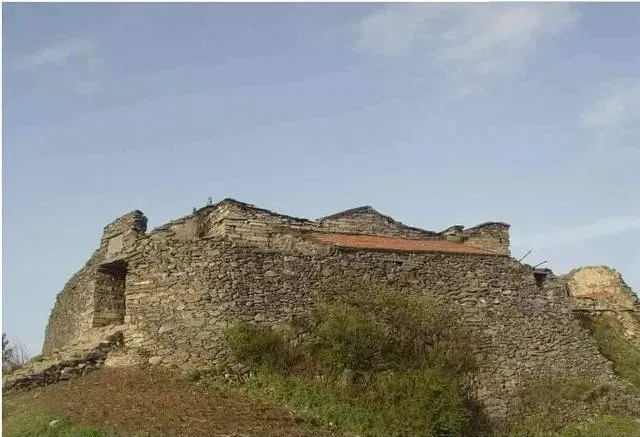
That night, people at the foot of Phoenix Mountain saw a large fire near the summit. The next morning, six forest rangers climbed the mountain to extinguish the fire. Upon reaching Thiet Ngoa temple at an altitude of 2,128 meters, they were shocked to discover multiple casualties inside, with blood-stained floors and two rooms completely burnt down.
After searching, the police determined that a total of 10 people died in three rooms, including six temple staff and four pilgrims, aged between 12 and 63. All victims were murdered. No murder weapons were found at the scene.
On a cardboard box in front of the altar, the perpetrator left two lines of words written in blood stating the time of burning the temple and a condemnation, “the lascivious must be killed.” Beside the altar was a dead chicken, seemingly used as an offering. On the wall were blood-written lines full of hatred like “deserves to die.”
Cash, mobile phones of the pilgrims, and the donation box remained intact, indicating that this was not a robbery-murder case.
Liu Dexin, the temple’s treasurer and security guard, mentioned that around 7 p.m. on July 14, he encountered a pilgrim named Qiu Xinghua going in the opposite direction. Qiu Xinghua was carrying a black bag and holding a dog. Liu Dexin tried to start a conversation, but Qiu Xinghua just grunted and continued walking.
Suspecting Qiu Xinghua could be the culprit, the police went to his house but learned that he had gone to a friend’s house on the opposite side of the river four hours earlier. When the police arrived, Qiu Xinghua was on a high cliff, noticing the police, hastily packed up and fled into the vast mountains.
Earlier, Qiu Xinghua had secretly thrown away the leather shoes used to climb the Thiet Ngoa temple, continuously changing into different pairs of sandals. He also prepared a large wool coat, always carrying it despite the hot weather. When asked why, he said, “The wool coat is convenient, suitable for wearing and sleeping.”
During his days hiding in the mountains, Qiu Xinghua successively abandoned belongings, including the wool coat, a wrench, sugar taken from the temple, a scripture book, and a ring belonging to one of the victims.
On July 26, the Ministry of Public Security issued a wanted notice for Qiu Xinghua, offering a reward of 50,000 RMB.
On July 30, Qiu Xinghua used a shovel to attack a railway construction worker in Suizhou City, Hubei Province, robbing a black backpack.
On the morning of July 31, Qiu Xinghua went to the home of Wei Yi Kai, a farmer in Suizhou, under the pretext of helping to repair a water tank and discussing business cooperation to deceive their trust. After dinner that evening, while Wei Yi Kai’s family was resting, Qiu Xinghua used a pickaxe and a kitchen knife to hit multiple blows to the heads of Wei Yi Kai and his wife and daughter, robbing over 1,300 RMB. Wei Yi Kai passed away on September 9 in the hospital, while his wife and daughter sustained serious injuries.
On August 2, a woman in Shiquan County, Qiu Xinghua’s hometown, saw him while she going up the mountain to cut vegetables for pigs, and he asked her for food.. Upon returning home, the woman reported to the police. Over 300 police officers and villagers surrounded and sealed off the area where Qiu Xinghua appeared and the surrounding mountains, but he managed to escape.
On the morning of August 5, two workers on Phoenix Mountain discovered someone sneaking into the dormitory to cook rice; there was still uneaten rice in the bowl on the table. They believed Qiu Xinghua had just left and hurried down the mountain to report, but even though hundreds of police officers arrived, they found no trace of him.
On August 11, the reward for capturing Qiu Xinghua was increased to 100,000 RMB. The police persuaded Qiu Xinghua’s wife and children to use loudspeakers on the mountain to advise him to surrender.
Around 8:20 p.m. on August 19, Qiu Xinghua returned to the rented house in Hanzhong City. When he knocked on the door, four ready police officers immediately subdued him.
Seeing the police, Qiu Xinghua’s relatives suddenly became agitated, crying and rushing in to resist the arrest. Qiu Xinghua shouted to his relatives inside the house, “Quickly get me a knife for cooking!” Luckily, they regained their senses in time and didn’t comply with his request. In a frenzy, Qiu Xinghua bit into the right arm of one police officer.
On August 20, Qiu Xinghua was arrested on suspicion of murder.
On April 23, 2010, Qiu Xinghua was sentenced to death for intentional homicide and robbery, with 5,000 RMB confiscated.
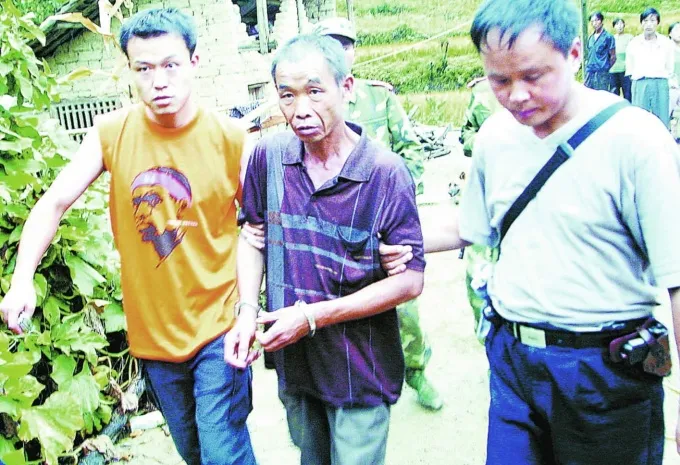
On October 31, the last day before the appeal deadline, Qiu Xinghua filed an appeal. His wife stated that he had a history of mental illness. A psychiatric expert also speculated that Qiu Xinghua had psychological issues and requested a court-ordered examination.
On December 8, the Higher People’s Court of Shaanxi Province conducted a retrial. The defense lawyer requested a psychiatric forensic examination for Qiu Xinghua but was not approved.
Qiu Xinghua told the judge, “I do not suffer from any mental illness.” He shared with his lawyer that he was afraid of being diagnosed with a mental illness because then no one would read the two autobiographies he was writing in prison.
On December 11, five legal experts, professors of law from prestigious universities, sent an open letter to the Ministry of Justice urging an immediate psychiatric evaluation of Qiu Xinghua. In the letter, under the hypothetical scenario raised by psychiatric experts, the failure to conduct a psychiatric examination for Qiu Xinghua would seriously damage the defendant’s rights and the credibility of the judicial system.
On the morning of December 28, 2010, the court concluded that Qiu Xinghua had clear motives for murder, evaded capture for many days after the crime, and repeatedly escaped police pursuit, demonstrating his intent to flee.
During multiple interrogations, Qiu Xinghua consistently confessed to the reasons, methods, and crime scenes of the murders and robberies, answering questions accurately, with clear reasoning, and showing no signs of abnormal psychology. These were enough to prove that the defendant had clear cognitive abilities and was fully in control of his actions when committing the crimes, so the court rejected the defense’s request for a psychiatric examination.
The appellate court rejected Qiu Xinghua’s appeal and upheld the original death sentence, which was immediately carried out.
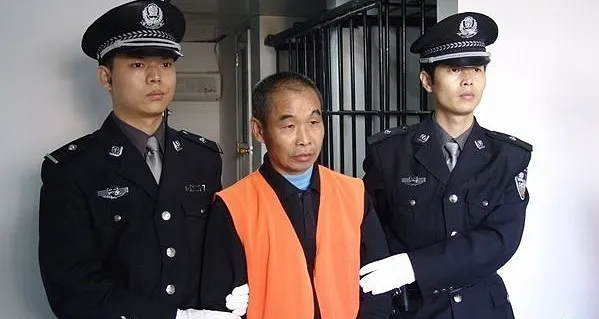
As Qiu Xinghua was being escorted to the court, a reporter suddenly asked loudly, “Qiu Xinghua, do you regret?” Amidst the silence, Qiu Xinghua smiled and said, “No regrets!”

